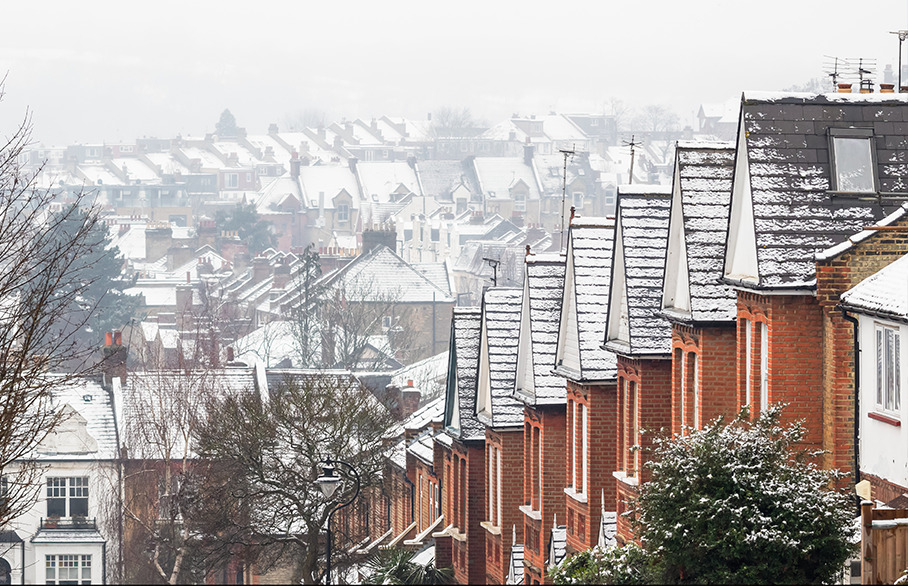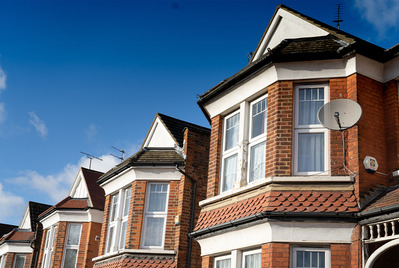
With the arrival of winter comes colder, harsher weather. While your home will keep you safe from dropping temperatures, your property will be exposed to the elements.
This is especially an issue if your property is to be empty for a significant amount of time this winter. This could be because you are leaving your rental home over Christmas to visit family, your investment property is currently vacant and you're searching for a tenant or you're selling and you've already moved into your new home.
We recommend taking precautionary measures now to help reduce the likelihood of your property becoming damaged this winter. These are our top tips to help protect your home this winter.
The danger of mould
Mould and dampness are serious problems that can have adverse health effects, so you need to be vigilant this winter to avoid mould building up.
A simple yet effective way to reduce the risk of mould is by ventilating your home regularly. Open windows, utilise extractor fans and air vents regularly.
It's cold out so it doesn't have to be for an extended period, even just a short amount of time each day will help. Always remember to ventilate when the heating is off as otherwise you'll be wasting energy.
Reducing humidity inside will also help reduce mould forming. You could invest in a dehumidifier to reduce moisture and condensation.
Avoid drying clothes on radiators or in small confined spaces. When drying clothes try to position them near an open window or somewhere with good ventilation.
If condensation does build up, for example on the inside of windows, remember to wipe moisture off regularly.
How to avoid frozen pipes
When the temperature drops below freezing there is a risk that pipes could become so cold that the water inside freezes. When water freezes it expands, which will lead to pipes cracking or bursting.
Taking precautionary measures now to avoid pipes freezing is the best practice. We recommend you:
- Avoid keeping the heating off for extended periods. Keep the heating on low or use a timer to prevent pipes from dropping to below freezing temperatures.
- Inspect gutters for damage and blockages that could cause water to back up and freeze.
- Have your boiler inspected regularly (every 12 months) and familiarise yourself with what to do in the event it was to stop working. Different types of boilers can experience a variety of issues, for example some condenser boilers have external pipes that can freeze, cause a blockage and shut the boiler down. Keeping the heating on overnight or insulation can help with this issue but, as it may be expensive, you should look up your boiler manufacturer to see if they have any tips or guidance.
- Insulate external water pipes and taps, as well as the loft water storage tank if you have one.
- Locate the mains water stopcock so that if a pipe does freeze you know how to switch it off until you have thawed the pipe.
In the event a pipe does freeze and hasn't burst yet, you should first turn the water stopcock off. You then need to heat up the pipe, but avoid direct heat such as pouring boiling water on the pipe as this can cause cracks.
We would recommend using a hot towel or water bottle to slowly heat the pipe and melt frozen water within.
Ready for a fresh start? With a free no obligation property valuation you can find out how much you could secure for your next home.

Your Move E-Marketing Executive



